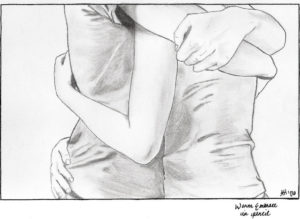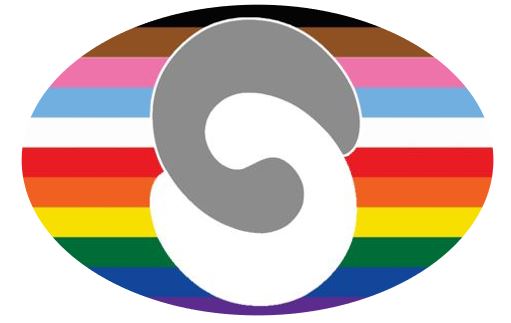Have you ever experienced deep connection and affection with a stranger? Many Cuddle Sanctuary attendees and clients have.
As we sit together at closing circle, we often feel incredibly bonded as a group, even if we just met a couple of hours before. At the end of the evening, however, we mostly go our separate ways. Some of us may never see each other again.
This scenario can be confusing for some. In a situation where the intimacy feels fabricated, I have heard the question asked, “Was that real?”
I’d love to explore that question a little more.
What Counts as Real?
Most of the time, we’re not checking in on reality when we ask this question. No one is arguing that it was a dream or imagined experience that didn’t actually take place. What we’re asking about is if it was genuine. In a contrived environment, do those feelings count? Does a limited experience get to be meaningful?
We have a tendency to assign meaning to longevity and sustained contact. Friendships feel truer if they span years and traverse multiple contexts. Marriages are only measured to be successful only if they never end (except in death).
Short term, single-serving experiences don’t fit within that paradigm, and their impact can get severely discounted as a result.
Yet, many of us have experienced a one single moment of connection that is just as potent as a relationship that has spanned years.
It’s true that contact that is crafted with intention for a specific and brief duration is different from an organic relationship. It’s not the same as an ongoing relationship that has the potential to evolve over time. But it doesn’t make the intimacy counterfeit.
Paid for Love
As a professional cuddler, I grapple with this question frequently. We call our sessions the Affection Spa for a reason. They are full of tenderness and care, and many clients experience an intimacy there unlike anywhere else. And yet, that connection stays within the context of the session. It doesn’t evolve into friendship or romance, and we remain practitioner and client. This arrangement can feel a little like paying for love.
Early in my practice, I would get confused about my role and feel some guilt or shame for accepting money to be loving. I felt embarrassed for having boundaries about keeping our relationship in the professional context. Did it mean the love that I gave wasn’t real?
These days, it’s a lot clearer for me.
As a practitioner, this isn’t an acting gig. (And good acting is never about faking it for that matter.) For me, stepping into my role is all about channeling real feelings of respect, nurture, and acceptance. I call this love; platonic love. This takes attention and practice on my part to be able to do that with most anybody. This positive regard tends to extend beyond the session, even if I never see the client again. This love and care can’t be bought. What money pays for is simply the space and time to create and nurture those feelings.
Is that real love? I like to think it is, even if it looks different from an organic relationship.

Let it Be True
I’ve come to recognize that when I ask “Was that real?”, there’s another hidden question behind that.
I’m not asking about my perception of reality. I’m not even really asking if what I experienced is sustainable and reproducible.
What I am really asking about is my lovability.
I felt love in a powerful way. Am I worthy of that? Could those positive feelings toward me be heartfelt and genuine, even in this limited context? Do I really get to enjoy that? It felt too good to be true.
I’m learning to let myself believe in its validity. I’m learning to let it be true — even if it’s just for that one moment in time.

